The 2024 Paris Olympics are fast approaching, and the city is hard at work getting its venues prepared to host an ambitious slate of events.
And there’s plenty of innovation in store for spectators gathering in the City of Light this summer. While many existing and well-known stadiums will be used for 2024 Olympics events, the city of Paris is also preparing a handful of picturesque and innovative venues — including an opening ceremony unlike any seen before.
While the ramp-up to the Games appears to be going full speed, it’s a lot different when millions of people descend on the Ile-de-France region this summer — not just for the 2024 Summer Olympics but for the Paralympic Games to follow.
While the Olympic Games come with the usual congestion and price hikes on things like restaurants and hotels, these issues promise to be mitigated somewhat by a centralized location for many of the popular sports venues — some of which will be stationed next to the city’s most iconic sites.
As a veteran of attending Olympic games, I’m always intrigued by how cities are preparing to host. On a recent visit to Paris, I got an opportunity to see all of the preparations taking place for the start of the Olympics in late July. In addition, I had a glimpse of the infrastructure that will help take spectators from site to site.
Here’s a look at where 2024 Olympics events will be held in Paris and the surrounding region, from existing sports venues to temporary stadiums. And if you’re planning a trip to see the Olympics but are still looking for event tickets, be sure to visit the official Paris 2024 website for ticket availability.
Opening Ceremony: The Seine River
Much of the hoopla surrounding the 2024 Paris Olympics has to do with the organizing committee’s ambitious choice for an opening ceremony venue. For the first time, the ceremony will not be held in a stadium, but rather along the Seine River.
Several hundred thousand people are expected to descend upon the banks of Paris’ iconic river on the night of Friday, July 26. The typical parade of athletes will take place on barges traveling on the river, with spectating areas set up along the river and on the many bridges that span it.
While prime viewing areas, such as on the famous Alexandre III bridge, have already been sold at a premium, most of the riverbank on both sides are free to the public. Standing-room spots figure to be in high demand, to the point where security for the event has been a hot topic of discussion.
However, if you can brave the crowds, it’s likely worth it to be a part of an event unlike any other in Olympic history.
Athletics: Stade de France
France’s national stadium, the Stade de France has already seen its fair share of iconic events, from the 1998 World Cup final to several UEFA Champions League finals. It will add one of the Olympics’ centerpiece events to its history this summer.
The venue will host athletics events (aka track and field), as well as rugby sevens and the Olympic closing ceremony on August 11.
Though largely known for its place in the international soccer world, the Stade de France was built with the larger footprint needed for track and field in mind. When I toured the venue in late February 2024, preparations for the Olympics were already well underway, with the lower bowl having been retracted and the track undergoing resurfacing.
The Stade de France is one of the prominent Olympic venues that’s some distance from the the center of Paris. It is technically outside the Paris city limits, in the suburb of Saint-Denis several miles to the north of the Seine River.
It’s reachable by Metro but spectators might find it more convenient to use the regional rail network, known as RER. From Paris’ Gare du Nord train station, the RER B and D lines travel north, with stops at Saint-Denis (separate depending on the line) about a 10-minute walk from the stadium.
Diving/Water Polo: Aquatics Center
The new Aquatics Center will stand next to the Stade de France — or, more accurately, across the A1 motorway. The two venues will be connected by a pedestrian bridge.
The new facility will host diving, water polo and artistic swimming events, and will serve as a swim center for the Saint-Denis community after the Games are over.
Swimming: Paris La Défense Arena
The arena in Saint-Denis won’t be the only aquatic venue in use during the 2024 Olympics. The huge Paris La Défense Arena, located west of the city in the suburb of Nanterre, will be used for swimming as well as water polo.
Not normally an aquatic facility, La Défense Arena can seat more than 30,000 spectators — making it the largest indoor arena in Europe — and is typically used for rugby and concerts.
From central Paris, Nanterre is reachable using the Metro (1 line) and RER (A and E lines). Both services stop at La Défense, a modern district and home to many of the tallest buildings in the region.
Beach Volleyball: Eiffel Tower Stadium
Beach volleyball figures to have the most picturesque venue of the Paris Olympics, as the Eiffel Tower will serve as the backdrop for a temporary 12,000-seat stadium. The facility will be located at the Champ de Mars, a large greenspace that leads to the foot of the tower.
The Eiffel Tower will be incorporated into other events during these Games. The parade of athletes during the opening ceremony will end at the tower.
Meanwhile, the Trocadero, the historic palace directly across the river that is a favorite of tourists for its views of the Eiffel Tower, will serve as a viewing platform for the marathon, triathlon and road cycling events that will pass nearby.
Various events: Place de la Concorde
The expansive Place de la Concorde plaza, one of the largest public spaces in the city of Paris, will be the venue for multiple events during the 2024 Olympics.
Several small stadiums will be built around the site’s historic fountain and obelisk, which will host 3×3 basketball, BMX cycling and skateboarding. Break dancing, which is making its Olympic debut, will also be held at a temporary facility here.
The Place de la Concorde is located along the Right (north) Bank of the Seine and is a starting point for the Champs-Élysses, the famous boulevard that leads west toward the Arc de Triomphe.
Gymnastics/Basketball: Bercy Arena
Basketball already has a strong presence in France and the city of Paris, and the French team will be a top contender for gold in the 2024 Olympics, with players like Victor Wembanyama, Rudy Gobert and Nicolas Batum expected to lead the host squad.
The Bercy Arena (also known by its sponsored name, Accor Arena) will be the home for basketball during the 2024 Olympics from the quarterfinal rounds on. It already has plenty of experience as a prime-time hoops venue, having hosted several major European competitions as well as three NBA games — including one this season between the Brooklyn Nets and Cleveland Cavaliers, held in January 2024.
Before the basketball medal rounds, the arena will be the home of gymnastics, one of the most popular Summer Olympics events.
The arena is located on the eastern edge of Paris in the 12th arrondissement, and is reachable on the Paris Metro via the Bercy station on lines 6 and 14.
Soccer: Parc des Princes
The home of Ligue 1 power Paris Saint-Germain will be just one of several football venues in France in use for the 2024 Olympics, but because of its location, it will serve as the “primary” one. It is set to host the men’s final on August 9 and the women’s final a day later.
The venue has had plenty of experience on the international stage, having been used for matches during the 1998 FIFA men’s World Cup and 2019 women’s World Cup, as well as the 2016 UEFA European Championship.
It’s also located close to the center of Paris, with several stops on Metro line 9 within easy walking distance.
Tennis: Roland Garros
The famous clay courts of the French Open tournament will, naturally, serve as the home for Olympic tennis in 2024. The complex, which includes the Phillippe Chartrier center court, will also host boxing matches.
Roland Garros is located in the 16th arrondissement, west of central Paris and just a short walk away from the Parc des Princes. It’s thus reachable via line 9 of the Metro, with the Michel-Ange Molitor station about a 10-minute walk away.
More venues
Several other major Paris landmarks will be used as backdrops and/or venues for 2024 Olympic events.
- The Grand Palais, located just west of Place de la Concorde, will be the home to fencing and taekwondo events.
- The Hôtel de Ville, aka Paris City Hall, will be the starting point for the Olympic marathon. It’s located on the Right Bank, near the Louvre and the Notre-Dame cathedral.
- The Esplanade des Invalides, a large park located between the Alexandre III bridge and the Eiffel Tower, will host archery events. The centerpiece of the area is the Hôtel des Invalides, where Napoleon’s tomb is located.
- The gardens of the Palace of Versailles will welcome equestrian and modern pentathlon during the 2024 Olympics. The world-famous Versailles, which was constructed to be the vacation home of King Louis XIV, is located about 45 minutes outside central Paris and is reachable via RER line C.
- If you want to see surfing in these Olympics, you’ll have to leave not only Paris proper but the country of France entirely! Olympic surfing will be held at Teahupo’o, a world-renowned surfing site in Tahiti. (Why Tahiti? The Pacific island is a part of French Polynesia, an “overseas collectivity” of France.)

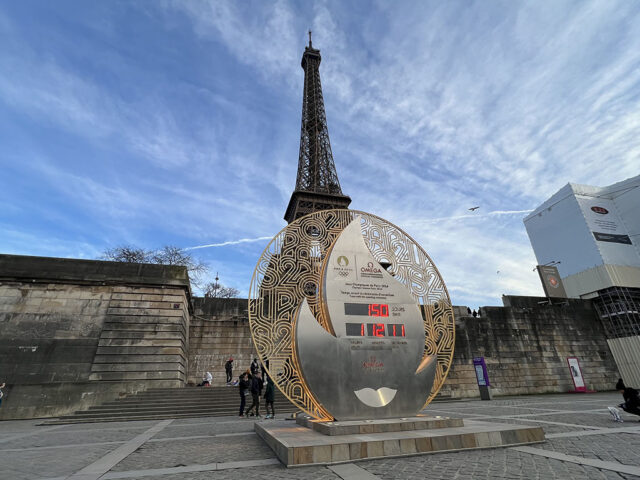
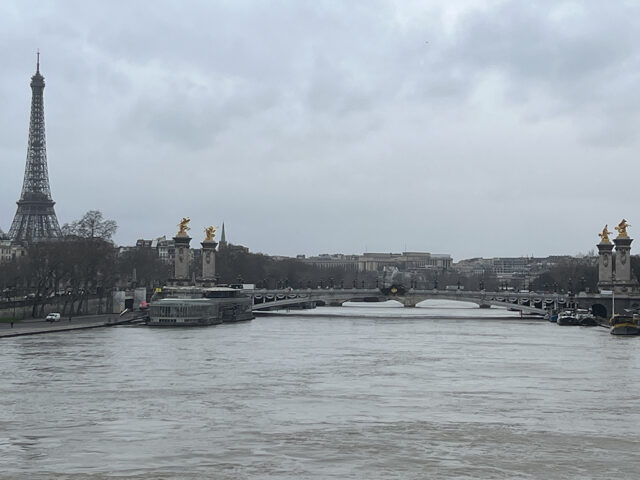
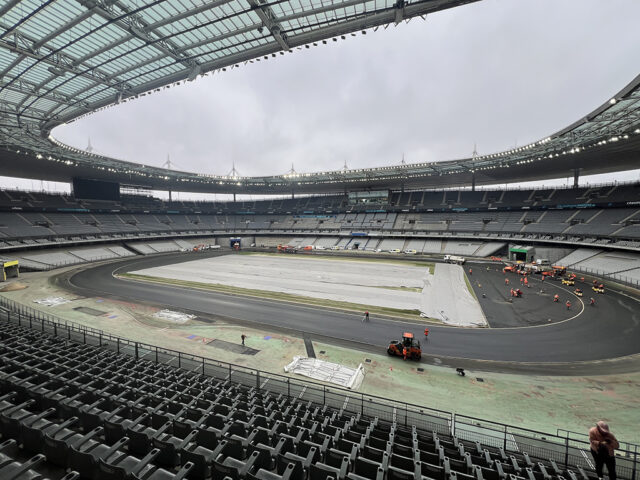
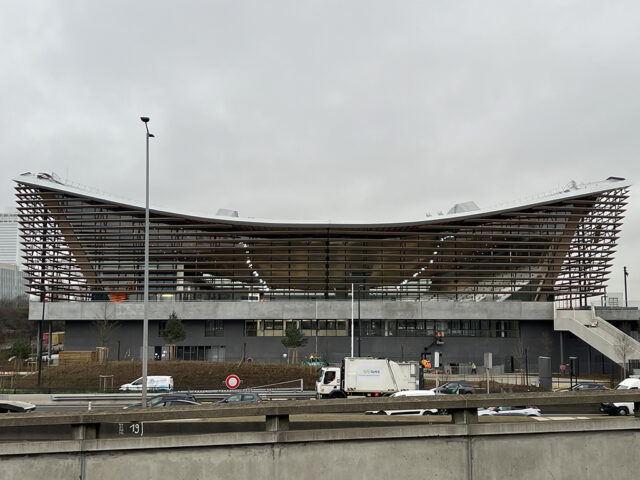
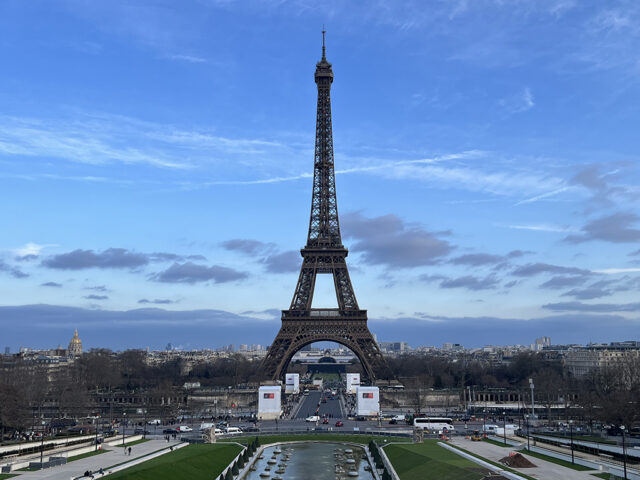
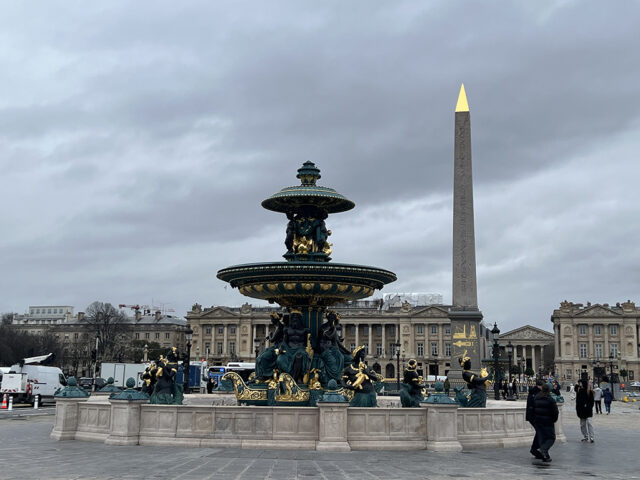
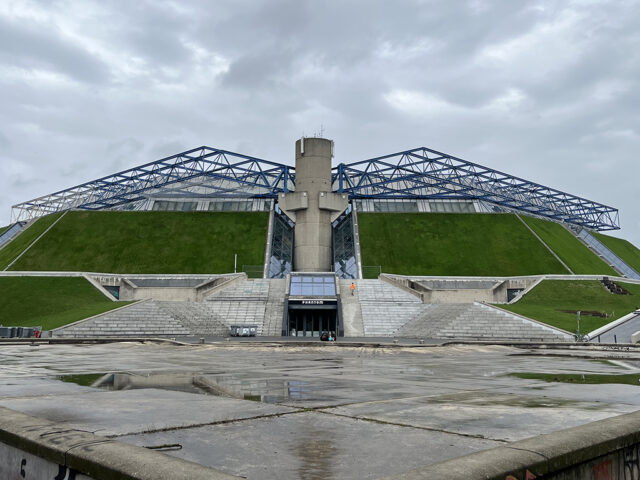
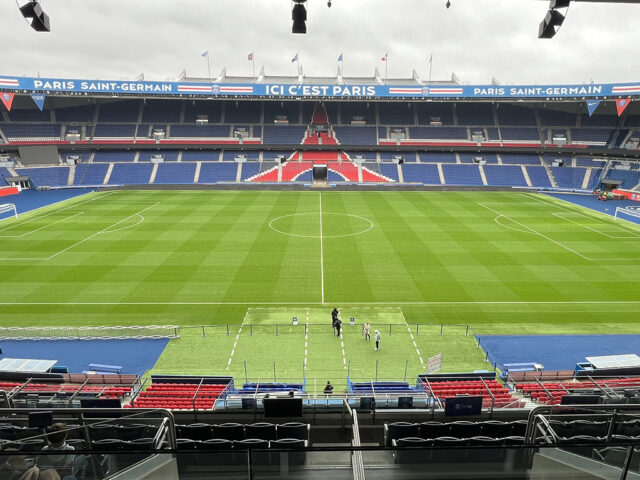
 Edward de la Fuente | Itinerant Fan
Edward de la Fuente | Itinerant Fan
